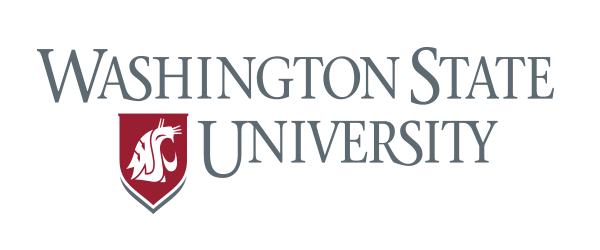успешных поступлений
университетов и бизнес-школ мира
странах работают после учебы наши выпускники
успешных поступлений
университетов и бизнес-школ мира
странах работают после учебы наши выпускники
Founded in 1890, Washington State University, WSU is a top-tier public research, land-grant institution comprises of four campuses. Its ethos is rooted in accessibility and public service. Its main Pullman campus is situation within 600 acres of land in the agricultural Palouse region that spans the northwestern states of Washington and Idaho. Other campuses include the Health Sciences campus in the city of Spokane, another in Tri-Cities and the fourth in Vancouver, on the banks of the Columbia River.
WSU is proud of its work with the wider community – its 39 extension offices provide educational opportunities for Washington students throughout the state and its four research centres help local growers sustain their crops. Research activity addresses issues in health, food, energy, sustainability, social opportunity and global security. The university also has an energy programme that provides information on energy efficiency for organisations and consumers alike and it runs 24 small business development centres for start-ups.
WSU has close collaboration with American and international labs and agencies. Its scholars team with Pacific Northwest National Laboratory on research for sustainable production of bioproducts and biofuels. The U.S. Department of Agriculture (USDA) Agricultural Research Service works seamlessly with WSU researchers from on-campus offices.
The university has highly recognized faculty. WSU scholars include members of the National Academy of Sciences, National Academy of Engineering, Institute of Medicine, and recipients of numerous national awards and fellowships. WSU researchers garner worldwide recognition for their discoveries. Many stand among the most widely published and frequently cited scholars in the nation.
Washington State University's ranking in the 2017 edition of Best Colleges - National Universities, 143. It is also ranked in the top 140 universities in America with high research activity, as determined by the U.S. News & World Report.
WSU is ranked 140th nationally and 70th among public universities in the 2016 U.S. News & World Report rankings. It also ranked 69th overall among 343 undergraduate business schools; ranked 19th in the international business programs accredited by The Association to Advance Collegiate Schools of Business, and ranked 59th overall for best undergraduate engineering programs accredited by the Accreditation Board for Engineering and Technology. WSU's College of Veterinary Medicine ranked 14th in the nation.
Among the 39 WSU alumni to receive the Regents' Distinguished Alumnus Award since 1962 are recipient of the 2004 Nobel Prize in Chemistry Irwin Rose, broadcaster Edward R. Murrow, Microsoft co-founder Paul Allen, astronaut John M. Fabian, cartoonist Gary Larson, molecular evolutionist Allan Wilson, banking executive Phyllis J. Campbell, Entrepreneur Clint Hedin, sociologist William Julius Wilson, author and film director Sherman Alexie, veterinary researcher John Gorham, wheat breeder Orville Vogel, physicist Philip Abelson and physician Neva Abelson.
WSU is well known for its programs in chemical engineering, veterinary medicine, agriculture, pharmacy, neuroscience, food science, plant science, business, architecture, and communications. The most popular majors are Social Sciences, Nursing and Psychology.
The liberal arts and sciences have an important place in the curriculum, along with business, communication, education, architecture, pharmacy, nursing, and the traditional land-grant disciplines of agriculture, engineering, and veterinary medicine.

This university is located in Pullman, Washington, a city with about 31,000 residents. Spokane, WA, the closest major city, is 75 miles away. It is also the closest city that contains an airport.
It is also 11 km west of the Idaho border and Moscow, home of the University of Idaho, also a land-grant institution. The university communities are connected by Highway 270 and the Bill Chipman Palouse Trail.